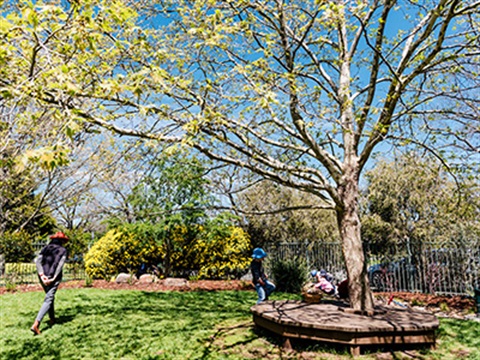Kindergarten in Victoria

The Victorian Government's Best Start, Best Life reforms are improving the landscape of early childhood education and care in the state.
These reforms will be gradually rolled out across the state according to local government areas.
By 2029, all eligible children across Victoria will have access to 15 hours of three-year-old kindergarten, and by 2036, all eligible children will have access to up to 30 hours of four-year-old kindergarten (to be known as pre-prep).
We will publish updates about how these reforms and any subsequent changes to our kindergarten programs on this website.
To find out how your preferred kindergarten provider will be managing the rollout, it is best to contact them directly.
Macedon Ranges LGA pre-prep rollout timetable
| 2026 |
Priority cohort 1 - children who:
- identify as Aboriginal or Torres Strait Islander
- are from a refugee or asylum seeker background and/or
- have had contact with children protection
Can receive up to 25 hours of pre-prep per week (increasing to up to 30 hours from 2028).
|
| 2028 |
Priority cohort 2 - children who:
- Have (or have a parent or guardian who has) a Commonwealth concession card;
- Are a multiple birth child (triplets or more)
Can receive up to 25 hours of pre-prep per week (increasing to up to 30 hours from 2030)
Universal cohort - all children who:
- Are not covered in priority cohort 1 or 2
Can receive up to 20 hours of pre-prep per week for all children.
|
| 2029 |
- Services in Macedon Ranges can offer up to 25 hours of pre-prep per week for all children in the universal cohort
|
| 2031 |
- Services in Macedon Ranges can offer up to 25 hours of pre-prep per week for all children in the universal cohort
|
What does free kinder mean?
How the Department of Education funds free kindergarten
A funded kindergarten program is the time that the qualified Early Childhood Teacher is in the room delivering kindergarten program.
Sessional kindergartens
Participating sessional kindergartens are fully funded by the Department of Education and provide free kindergarten for up to 15 hours per week. It is important to discuss fees with service providers directly as some sessional kindergartens may have additional fees.
All Council-run kindergartens are free to register and attend.
Free kindergarten at Long Day Care
Free Kinder funding from the Departmnet of Education is provided directly to participating Long Day providers which is then offset against the daily rates to cover meals, extended hours etc. It is important to contact your long day care provider directly to understand what fees you may pay.
Kinder Tick
The Kinder Tick helps families recognise funded kindergarten programs that have been approved by the Victorian Government and meet the set requirements needed to receive government funding.
Council is a proud partner of the Kinder Tick initiative.
Early Start Kindergarten
Early Start Kindergarten gives eligible children 15 hours of free kindergarten a week.
To be eligible your child must be three years old by 30 April in the year they'll start kindergarten, and
- be from a refugee or asylum seeker background, or
- identify as Aboriginal or Torres Strait Islander, or
- your family has had contact with child protection.
This video was filmed and produced by the Victorian Government Department of Education.
How to apply
Early Start Kindergarten is available in all kindergarten programs delivered by a qualified teacher. You can enrol your child by contacting a kindergarten provider asking to access an Early Start Kindergarten grant.
Koorie Kids Shine
Koorie Kids Shine provides Aboriginal and Torres Strait Islander children with up to 15 hours of free kindergarten each week.
At kindergarten, children will:
- enjoy fun activities
- make new friends
- learn through play, art, music and dance
- learn to express themselves in a safe, inclusive and caring environment
- build the skills and confidence to prepare them for school.
To be eligible, a child must turn 3 or 4 by 30 April in the year they go to kindergarten.
Kindergarten programs have a qualified teacher and work hard to create culturally safe places for Aboriginal children and families, such as including Aboriginal perspectives in the learning curriculum and environment and encouraging children’s growth through indoor and outdoor learning environments.